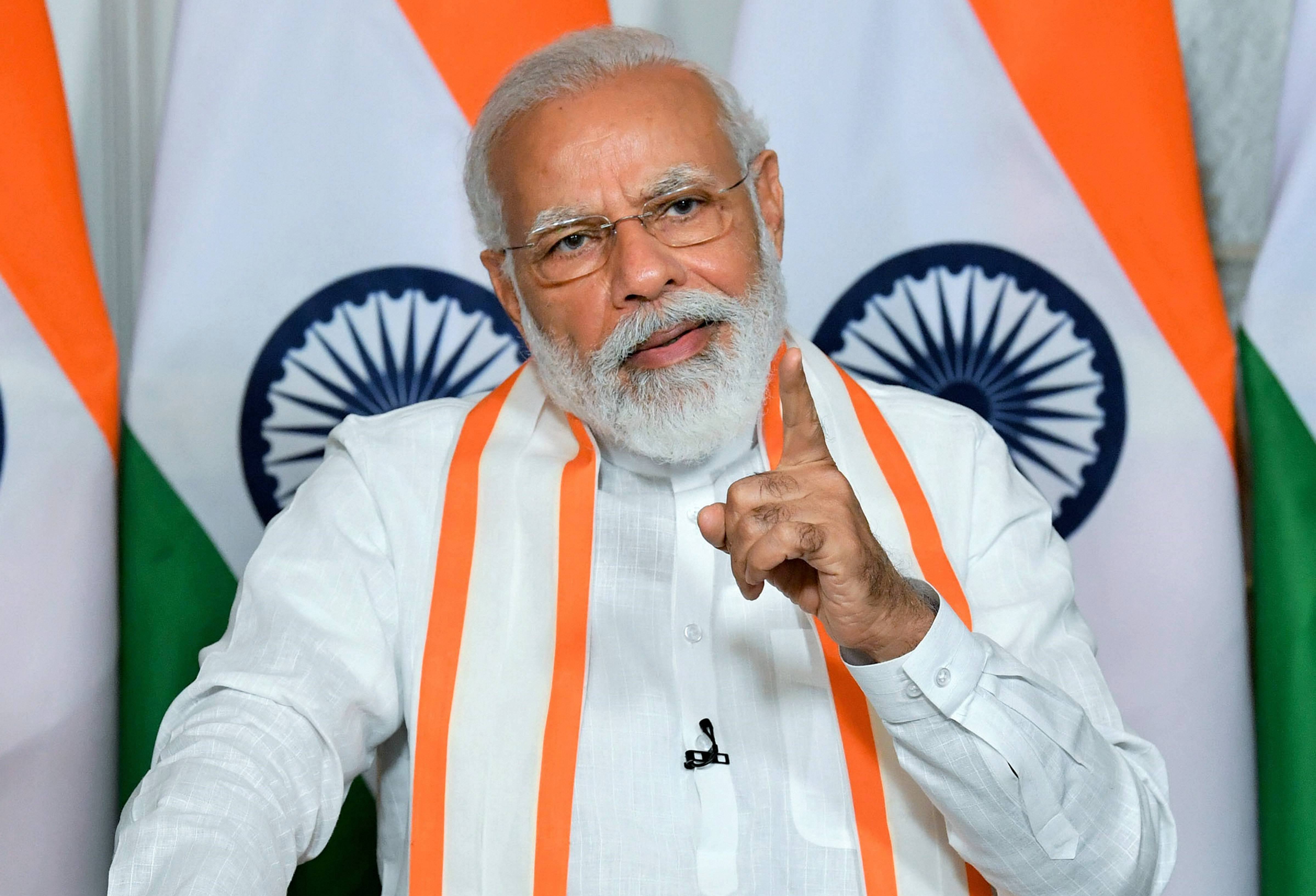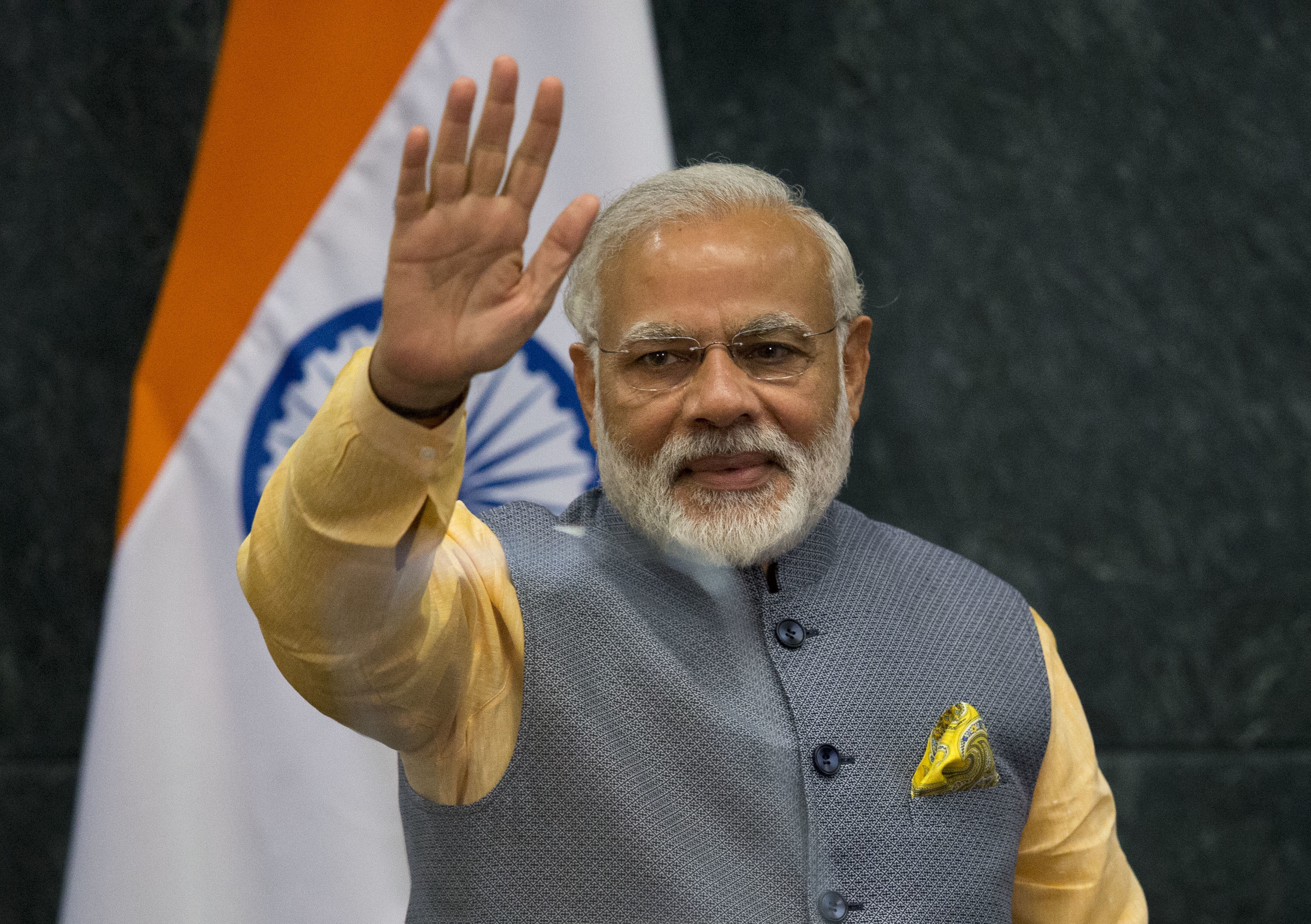Calling for Change: PM Modi Urges Corruption, Dynasty, and Appeasement to Exit India

Calling for Change: PM Modi Urges Corruption, Dynasty, and Appeasement to Exit India
On the 81st anniversary of the Quit India Movement, Prime Minister Narendra Modi made a veiled reference to the Opposition, suggesting that India is currently united in its stance against corruption, dynasticism, and appeasement. In his statement, Modi implied that the country’s collective voice is aligned in opposing these issues.
This sentiment can be seen as a commentary on the political landscape and a reflection of the current discourse on issues related to governance, transparency, and equality. The reference to the Quit India Movement, a significant milestone in India’s struggle for independence, adds historical context to the message, emphasizing the importance of unity and shared values in the nation’s progress.
In commemoration of the 81st anniversary of the Quit India Movement, Prime Minister Narendra Modi took to the social media platform X (formerly known as Twitter) to reflect on the historical significance of the event. He paid tribute to the individuals who were instrumental in the movement, acknowledging their contributions to India’s struggle for independence. Led by Mahatma Gandhi, the Quit India Movement played a pivotal role in liberating India from colonial rule. In his message, PM Modi conveyed that today’s India echoes a unified sentiment: “Corruption, Quit India. Dynasty, Quit India. Appeasement, Quit India.”

By drawing parallels between the past and the present, the Prime Minister’s message emphasizes the nation’s commitment to addressing contemporary challenges such as corruption, dynastic politics, and appeasement policies. The use of the “Quit India” slogan symbolically aligns the current aspirations for a better and more equitable India with the historic pursuit of freedom from foreign domination.
In alignment with Prime Minister Modi’s message on ‘Quit India’, BJP MP and former union minister Ravi Shankar Prasad echoed the sentiments, emphasizing the need for specific changes to fortify the democratic values of the nation. He stated that family-based governance and corruption must relinquish their hold in India to preserve the integrity of democracy. Prasad underscored the significance of eradicating these issues, describing them as “rampant family rule in politics” and “stinking corruption,” while also addressing the dynamics of appeasement politics.
Prasad’s statement echoes the broader sentiment that the democratic foundation of the country requires protection and enhancement. The call for the removal of family-centric politics and corruption points to a larger aspiration for transparent and equitable governance. The invocation of the ‘Quit India’ theme aligns the ongoing struggle against these challenges with the historic freedom movement, emphasizing the significance of addressing contemporary issues to uphold democratic ideals.

Ravi Shankar Prasad, the BJP MP and former union minister, further delved into the notion of family dynasties in politics, highlighting its implications. He explained that the essence of family dynasties is when a leader’s offspring automatically assume leadership roles, including the potential to become Prime Ministers, Chief Ministers, or candidates for such positions, irrespective of their competence. Prasad continued by mentioning Rahul Gandhi’s consistent re-packaging by the Congress party, prompting him to question whether the Congress assesses Rahul Gandhi’s suitability for leading a complex and diverse country like India.
This commentary by Prasad underlines the ongoing debate regarding family dynasties in politics and their compatibility with the principles of democratic governance and meritocracy. The query about Rahul Gandhi’s capability adds an element of scrutiny to the leadership selection process within the Congress party.
Prime Minister Modi’s recurring accusations against opposition parties for indulging in politics characterized by corruption, dynasty, and appeasement, underscore a broader narrative of advocating for transparent and ethical governance. These remarks encourage citizens to reject practices that compromise the values of accountability, merit, and equitable representation in political leadership.
On a preceding Tuesday, Prime Minister Narendra Modi took a taunting dig at the opposition parties by suggesting that their decision to initiate a no-confidence motion against his government was motivated by the intention to gauge the mutual trust among members within their own alliance. He pointed out that the INDIA bloc, which constitutes various parties within the opposition alliance, has been marked by a prevailing sense of distrust among its constituents. This assertion insinuates that the motion was introduced not solely to challenge the confidence in the current government, but also to assess the strength of the alliance itself.

The Prime Minister’s remark illuminates the complexities and internal dynamics within the opposition alliance, highlighting the challenge of maintaining unity and coherence among parties with diverse interests and agendas. By framing the no-confidence motion in this context, Modi adds a layer of strategic calculation to the proceedings, underscoring the nuanced motivations behind political maneuvers.
Quit India Movement:
The Quit India Movement, also referred to as the “Bharat Chodo Andolan” in Hindi, was a momentous initiative launched by Mahatma Gandhi on August 8, 1942. It marked a significant turning point in India’s struggle for independence. The movement was officially launched during the Bombay session of the All India Congress Committee (AICC), where Gandhi gave the resounding call of ‘Do or Die’, with the overarching goal of ending the British colonial rule in India.
The movement galvanized widespread civil disobedience, acts of defiance, and non-cooperation against the British authorities. Demonstrators engaged in symbolic acts of dismantling governmental structures in various locations as a form of protest. During this period, several prominent leaders, including Mahatma Gandhi and Jawaharlal Nehru, were arrested as the British sought to suppress the movement.
By the conclusion of 1942, more than 60,000 individuals were incarcerated due to their involvement in the movement, and tragically, hundreds of lives were lost in the course of the struggle. The Quit India Movement left an indelible mark on India’s history, representing a pivotal chapter in the country’s relentless pursuit of independence from colonial rule.





